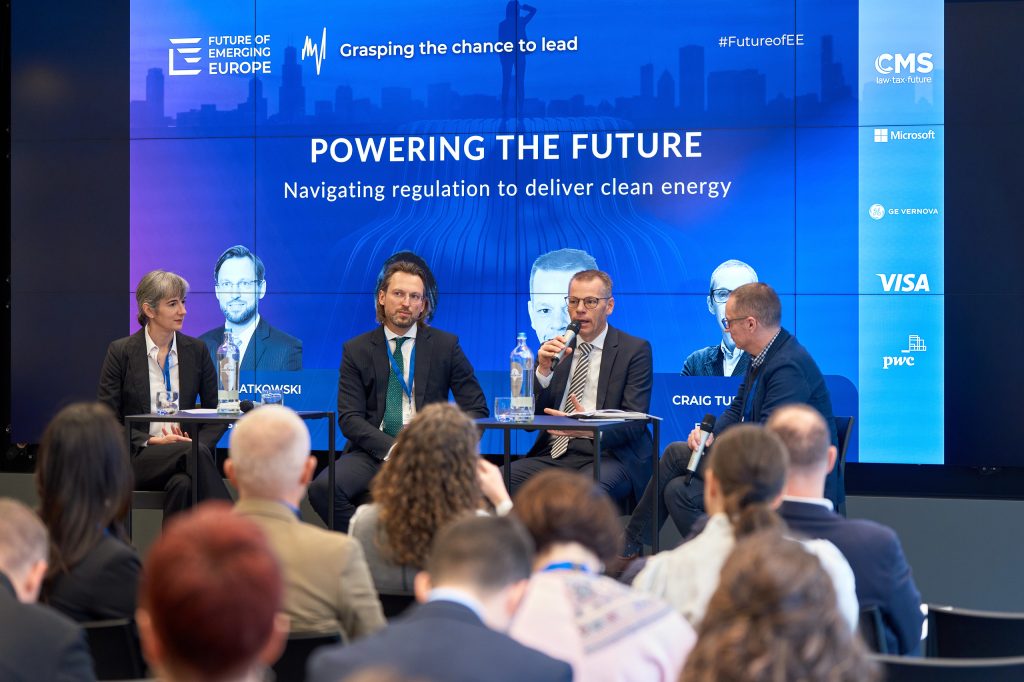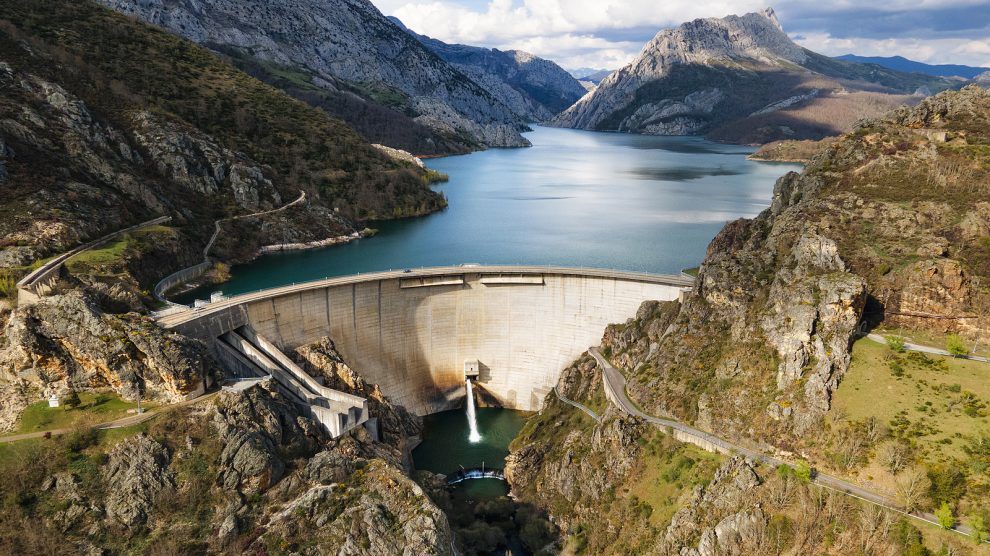Despite the challenges posed by the present geopolitical environment, a more prosperous, sustainable, and environmentally friendly future appears attainable with proactive private investment, favourable policies, and strategic cooperation.
Central and Eastern Europe is home to some of the world’s most significant clean energy potential, with vast renewable resources and a growing demand for sustainable energy solutions.
However, the region faces numerous challenges that must be overcome to ensure a successful transition towards a greener future, as governments struggle to strike a balance between promoting clean energy and ensuring affordable energy prices for consumers.
The role regional collaboration can play in harmonising clean energy regulations and how policymakers can ensure a level playing field for both traditional and clean energy sources will be crucial, alongside policy measures and incentives that can drive investment and innovation in clean energy within the region.
Nevertheless, different countries in the region currently have varying policies and regulations regarding renewable energy, which are creating uncertainty for investors and hinder the development of a unified market.
‘We are not out of the woods’
At the Future of Emerging Europe Summit and Awards, held in Brussels on November 8, Emerging Europe brought together key figures from the energy sector to discuss these issues and offer an overview of where the industry stands today, and where it might be heading.
According to Stephanie Gil, Practice Manager, Energy and Extractives Global Practice at the World Bank, when it comes to energy security and affordability, Russia’s war on Ukraine has been a wake-up call for countries around the globe to increase the push towards renewables, not least in Central and Eastern Europe and Central Asia.
“As we look at the coming winter season, there is concern in some emerging European countries,” said Gil. “Many are well prepared, and many have made long-term commitments and investments. But compared with some countries in the European Union, we are not out of the woods.”
Bodo Mayer, General Manager Hydro Solutions EMEA at GE Vernova said that his firm was being overwhelmed with enquiries for “all kinds of renewable projects”.
“Every day we are getting calls about renewable energy projects and how to build them,” he said, adding that there is also increased interest in nuclear energy. “Net zero was always a far-away target, very much for the long-term. But [since the beginning of the war] countries have realised that they have to take action now.”
In Poland, where some 70 per cent of energy is still produced from fossil fuels, Łukasz Szatkowski, Partner, Energy and Infrastructure at CMS said that the country is witnessing “a major push” towards renewable investments, but added that what the war had done was to make CEE’s governments “look for alternative sources of gas.”
“Irrespective of the push for renewables and low-emissions technology, there is still a market for gas.”

Stephanie Gil, Łukasz Szatkowski, and Bodo Mayer in conversation with Emerging Europe’s editor Craig Turp-Balazs
Filling the gaps
When it comes to the main challenges the clean energy sector faces in Central and Eastern Europe right now, regulation is never far from the discussion.
“Sometimes it can take forever to get an environmental impact study done,” said Mayer. “It’s slowing us down.”
Łukasz Szatkowski meanwhile suggests that countries in the region need to be more open to private investment in the energy sector. “Because of the energy security element, there is this perception that states need to own energy assets,” he said. “Whereas there are multiple mechanisms and structures in which you can control the asset security, control energy security, but not own the asset itself. There is a lot of equity and a lot of infrastructure funds chasing this type of investment.”
The World Bank, looking to support countries in their energy transitions, is aware of the enormous effort that must be put into reducing energy subsidies, while protecting vulnerable populations with adequate social safety mechanisms.
“It’s a huge gap,” said the Bank’s Stephanie Gil during the Brussels discussion. “For the sector to be attractive it needs to be financially viable.”
Gil made specific reference to the heating sector. “It’s a key source of emissions, of air pollution, of subsidies that could be reused towards incentivising more innovative technologies. It need to be critically addressed. And again, the private sector has a key role to play, but there will need to be some push on the public side.”
Gil was effusive in her praise for emerging Europe’s talent in the energy sector.
“Human capacity in the region is very high. Planning agencies—whether they exist on their own or with the regulators, or with the ministries of energy or sometimes with a university—are often strong. There is a good base.”
‘We already have the technology’
For Łukasz Szatkowski, while the European Union’s targets—particularly its aim to be carbon neutral by 2050—are ambitious, private investors can help to meet them, “as long as they are not over-regulated, which is the case now, in my view”.
“If they are provided with a certain level of stability, renewables is one of the most attractive sectors for investors.”
According to Bodo Mayer, the good news is that, “we already have the technology”, highlighting the role of hydro.
“Wind and solar are very weather dependent. We need something which is dispatchable, which you can turn off and turn on when you need it, when the sun is not shining, when the wind is not blowing. That’s hydro, already the world’s largest electricity resource in the world.”
Overall, the region’s high human capacity and strong planning agencies, along with its existing technological capabilities, create a promising outlook for clean energy development in Central and Eastern Europe.
With strategic collaboration, more favourable policies, and active private investment, despite the current geopolitical climate, a greener, sustainable, and profitable future looks achievable.
Unlike many news and information platforms, Emerging Europe is free to read, and always will be. There is no paywall here. We are independent, not affiliated with nor representing any political party or business organisation. We want the very best for emerging Europe, nothing more, nothing less. Your support will help us continue to spread the word about this amazing region.
You can contribute here. Thank you.



Add Comment